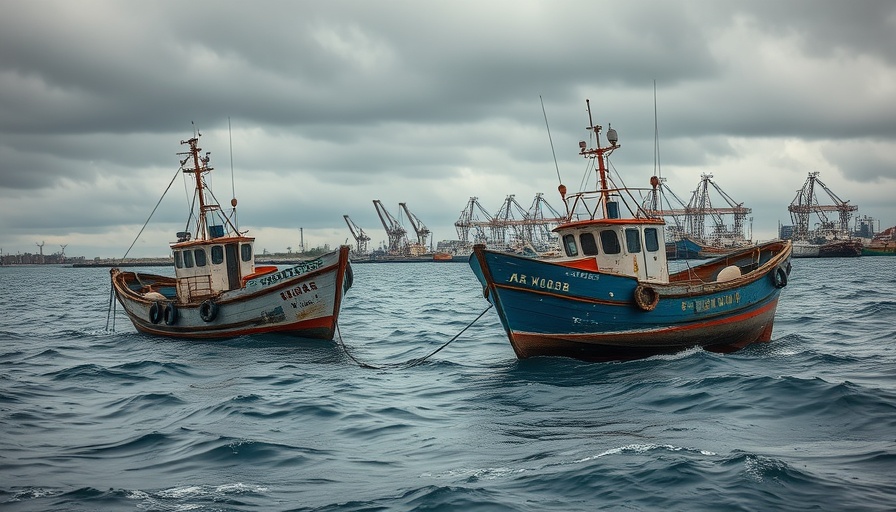
The Pivotal Role of China's New Commitment to Sustainable Fishing
In a landmark moment, China has joined the UN's Port State Measures Agreement (PSMA), a globally recognized treaty aimed at combating illegal, unreported, and unregulated (IUU) fishing. This move is heralded as pivotal in concerted efforts to ensure ocean sustainability, and the spotlight now shines on whether this commitment will translate into real, impactful action.
Understanding the Stakes: Why Illegal Fishing Matters
Illegal fishing undermines fisheries management, threatens marine ecosystems, and jeopardizes livelihoods for communities dependent on fish stocks. The Global Fishing Watch estimates that IUU fishing accounts for roughly 20% of the world's capture fisheries, affecting biodiversity and ecological balance. By becoming a member of the PSMA, China, with its massive fishing fleet, can make a significant difference in mitigating these issues.
Empowerment through Enforcement: What Changes Can Be Expected?
Experts call for robust enforcement and substantial changes following China's accession to the PSMA. As one of the world’s largest players in the fishing industry, China has unrivaled potential to transform global fishing practices. Increased inspections of domestic vessels returning to Chinese ports could thwart the illicit catch from entering the market, making a profound impact on global IUU fishing.
The Global Implications of China’s Fishing Practices
With 14 of the world's 15 busiest ports located in China, the nation's involvement in this agreement significantly broadens the treaty’s coverage, setting a precedent for other nations. This validation can lead to greater cooperation among countries to share data and enhance monitoring technologies, thus creating a more unified approach to tackling illegal fishing.
Concrete Changes Needed to Slow IUU Fishing
Just signing the PSMA isn't enough; experts emphasize that China needs to enact concrete, actionable policies to reinforce this commitment. Transitioning to a more sustainable fishing model may involve policies like limiting certain fishing practices, enhancing transparency in fish supply chains, and investing in technology that monitors fleet activities. For instance, using satellite tracking on fishing boats can help trace illegal activities from ocean to port.
Moving Beyond Legislation: The Path to Sustainable Practices
Beyond adherence to international agreements, the willingness to challenge domestic fishing practices will determine success in achieving sustainability. Stakeholders suggest initiatives that promote sustainable fishing methods, such as eco-friendly technologies and practices that align with circular economy principles. Educational campaigns may also be vital in fostering an eco-conscious culture among local fishermen.
Future Trends: China's Role in Global Maritime Policies
The future will be critical, as China’s decisions may influence worldwide fishing policies. The country's move could inspire other nations to prioritize commitments to sustainable fisheries and emissions reduction, supporting broader environmental conservation efforts. The integration of technology, along with global alignment of standards, will set the stage for transformative shifts in how the seafood supply chain operates.
Community Actions: How You Can Contribute
As individuals, we can support sustainable living by making conscious choices about seafood consumption. Advocating for seafood sourced from certified sustainable fisheries helps promote responsible fishing practices and puts pressure on markets to supply eco-friendly products. This awareness can contribute to protecting marine life and ensure the sustainability of our oceans for future generations.
Call to Action: Engage with the Cause
Now is the time to participate in discussions about sustainable practices in fisheries. By supporting local green initiatives and participating in community gardens or advocacy groups that promote clean, sustainable fishing, you can make a real impact. Together, we can ensure that China's new pledge against illegal fishing drives the change we need for healthier oceans.
 Add Row
Add Row  Add
Add 



Write A Comment